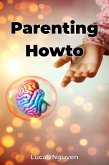"Kindergarten" offers a comprehensive exploration of early childhood education, examining how structured learning environments influence children's development during their crucial formative years. The book masterfully weaves together three fundamental pillars: developmental psychology, educational methodology for ages 3-6, and the sociological impact of quality daycare programs, creating a robust framework for understanding modern early childhood education.
Drawing from fifty years of research, including significant findings from the High/Scope Perry Preschool Project and contemporary neuroscience studies, the text presents compelling evidence for the lasting impact of quality early education on both academic achievement and life outcomes. The book progresses logically through four major sections, covering child development foundations, classroom dynamics, curriculum design, and family-teacher partnerships, each enhanced with practical case studies and implementation strategies.
What sets this resource apart is its seamless integration of traditional educational theory with modern understanding of brain development and social-emotional learning, making it invaluable for both professionals and parents. The text addresses current debates in early childhood education, such as the balance between academic readiness and play-based learning, while providing practical tools for immediate classroom implementation. Through its accessible academic style, the book successfully bridges the gap between scholarly research and practical application, offering clear guidance for creating nurturing educational environments that serve as crucial bridges between home life and formal schooling.
Drawing from fifty years of research, including significant findings from the High/Scope Perry Preschool Project and contemporary neuroscience studies, the text presents compelling evidence for the lasting impact of quality early education on both academic achievement and life outcomes. The book progresses logically through four major sections, covering child development foundations, classroom dynamics, curriculum design, and family-teacher partnerships, each enhanced with practical case studies and implementation strategies.
What sets this resource apart is its seamless integration of traditional educational theory with modern understanding of brain development and social-emotional learning, making it invaluable for both professionals and parents. The text addresses current debates in early childhood education, such as the balance between academic readiness and play-based learning, while providing practical tools for immediate classroom implementation. Through its accessible academic style, the book successfully bridges the gap between scholarly research and practical application, offering clear guidance for creating nurturing educational environments that serve as crucial bridges between home life and formal schooling.
Dieser Download kann aus rechtlichen Gründen nur mit Rechnungsadresse in A, B, BG, CY, CZ, D, DK, EW, E, FIN, F, GR, H, IRL, I, LT, L, LR, M, NL, PL, P, R, S, SLO, SK ausgeliefert werden.









